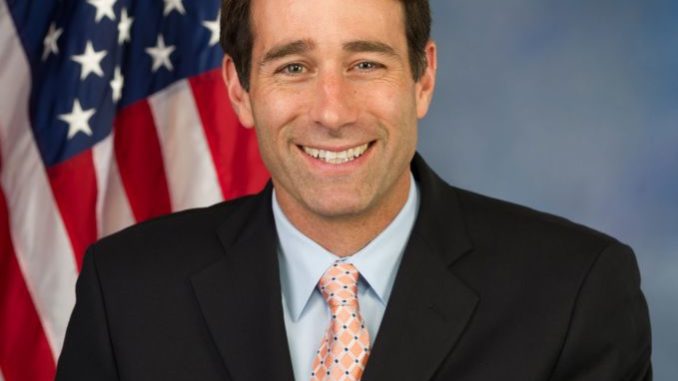
Graves disputes LDWF secretary’s $10 million annual estimate to oversee snapper fishery
The Baton Rouge author of a congressional bill that would transfer management of red snapper to the five Gulf of Mexico states fired back this week at the Louisiana Department of Wildlife and Fisheries secretary, who last week issued a statement saying a lack of federal funding could prevent the state from participating in any regional management program.
“Obviously this is political crap going on, and we’re just trying to figure out where it’s coming from and why,” Congressman Garret Graves told LouisianaSportsman.com. “This isn’t a partisan issue, and it shouldn’t be something that becomes controversial. If they want to play political games, they can play them by themselves.
“It’s not going to stop me from advancing the legislation. You can either represent the 99.9 percent of your constituents or you can represent the .01 percent that doesn’t like the bill — and if they want to make that decision, they can.”
Graves said his bill also has solid support from other Louisiana congressmen.
“The majority of the delegation is on the bill: Sen. (David) Vitter and Sen. (Bill) Cassidy had been pushing it; Congressman (Cedric) Richmond, Congressman (Charles) Boustany, myself, Congressman (Ralph) Abraham — we’ve all been pushing it,” he said.
In an interview last week, LDWF Secretary Charlie Melancon said when federal funding was pulled earlier this month from Graves’ H.R. 3094, his department could be on the line for more than $10 million annually if the legislation ultimately becomes law and red snapper management is taken away from the National Marine Fisheries Service.
For years under then-Gov. Bobby Jindal, the department and Coastal Conservation Association Louisiana worked together to try to strip Gulf red snapper management from the feds because of brief federal seasons and two-fish daily limits.
“I’m not certain that number is based in any real calculation,” Graves said, referring to Melancon’s $10 million-plus figure. “I will tell you that, No. 1, I have not ever seen a cost estimate that’s been released. And, No. 2, some of the back-of-the-envelope ballpark numbers certainly aren’t anywhere in that range.”
Graves, a Republican, said the bill was amended this month and federal funding was removed because then-LDWF Secretary Robert Barham and other state wildlife department leaders addressed the Natural Resources Committee last October in Washington, D.C., and said they didn’t need federal money for the regional management program.
In 2015, Louisiana’s saltwater fishing license fees increased from $5.50 to $13 to help fund the LA Creel Program that provides nearly real-time harvest numbers for snapper, redfish, speckled trout and other species brought to Louisiana docks by recreational anglers.
Last week, Melancon said that fee increase resulted in $3.3 million dollars, of which $2.8 million has gone to salaries associated with LA Creel, which would presumably be the state’s main means of overseeing red snapper management if it is removed from federal control.
Graves said that if the legislation does pass without federal funding going to the states, he would make sure the money currently being spent by the National Marine Fisheries Service on red snapper management would be removed from their budget.
“I certainly don’t have any tolerance for effectively giving National Marine Fisheries Service a raise as a result of their poor management,” he said. “If the Gulf states decide, ‘Yes we’re going to take this over,’ and that mission is removed from the federal government and given to the states, we certainly aren’t going to let them keep the money or keep getting paid for doing that job.
“So I plan on ensuring that those monies are removed from the National Marine Fisheries Service at the end of the day, and (that funding) could be given to the states or returned for deficit reduction.”
Graves said he was not given any advance notice of Melancon’s statement last week about concerns over the lack of federal funding. But his office was aware early on that the department apparently had some issues with the legislation.
“We got somewhat of a cryptic message earlier this year that they had some concerns, so we set up a conference call with them relatively immediately, and got on the phone,” Graves said. “The secretary was supposed to participate, but he got held up in the Legislature. And we went ahead and did the call, and it was clear to me that they had not read the bill; the concerns being articulated were not necessarily based on the bill because no one had read the bill. So we tried to go through and to, some degree, educate them on what the bill actually did, and I think we made some progress there.
“We did a follow-up face-to-face meeting where I went and met at the department, and we talked a little bit and they again weren’t able to articulate many specific concerns. It was, in many cases, these generic comments or things that simply didn’t apply to the bill. We tried to go through and talk through things to make sure everybody was on the same page.”
Graves said one important element of the bill is that a particular state is not forced to go through with regional snapper management if they don’t want to — but if one state opts out, the bill is effectively dead.
“That’s a really important distinction, because if you look at the comments Secretary Melancon released, it talks about a mandate,” Graves said. “Like some of our previous conversations, some of the things he brought up aren’t applicable to the bill, and that’s another example of that. If they choose to opt out, which is certainly an option they have, that’s fine: There’s no requirement that anything definitely happen.
“But the way the bill is written now is largely based upon a five-state agreement. So, in reality, Louisiana could by itself require the status quo.”
Despite Melancon’s statement, Graves remains committed to moving the legislation through Congress — with or without federal funding.
“This isn’t decided,” Graves said. “This is the first step in the process, and if there are problems there, that’s why there are several steps, which gives you the opportunity to work though it.”
But he said he understands the angst of the state’s recreational anglers, who now believe Louisiana could be responsible for the red snapper regional management program’s demise.
“This is an example as to why people are very frustrated with government today — because they feel like the public’s best interest and their best interest is not being represented on occasion,” Graves said. “But it’s certainly not going to stop us from moving this bill forward and doing what’s right.
“Clearly (Melancon’s) position is just indefensible.”


